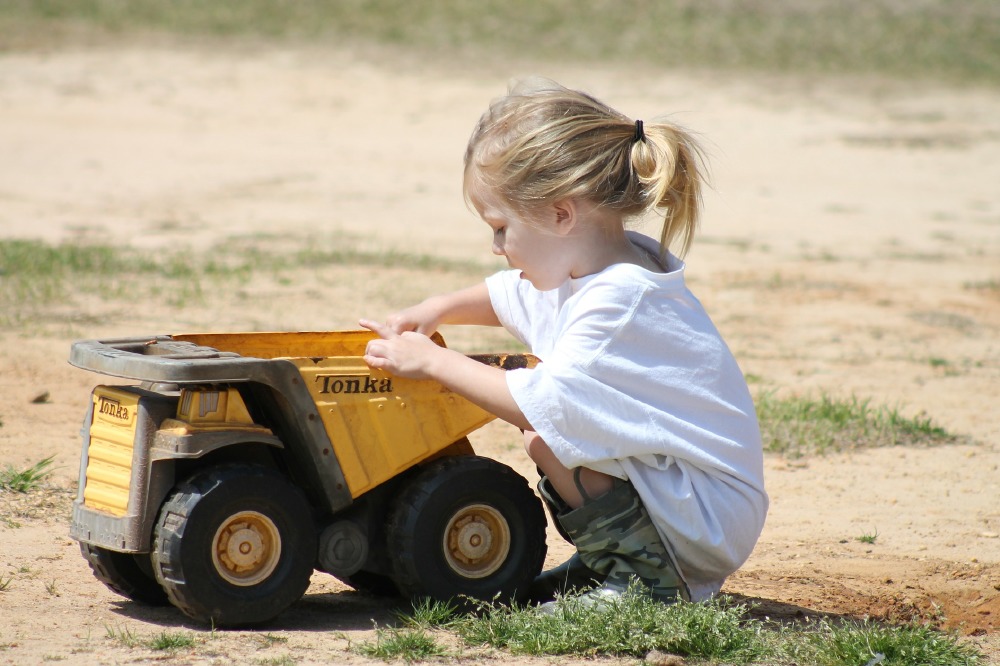The phrase "toxic masculinity" is one that often divides people. It's a term used to describe the societal pressures of traditional masculine stereotypes on young men and boys, and is seen as a restriction on certain emotions and behaviours. But we are living in the 21st century, which means gender roles don't mean half as much as they used to, and it's time we started drilling that into our children.

Craig Pomranz
That men shouldn't show their feelings is one of the biggest gender stereotypes. That they should aspire to be sports stars, mechanics and builders while women shouldn't aspire to more than domestic bliss is still a reality for many. We often talk about how much of a negative impact these ideologies have on women and girls from an educational and workplace standpoint, but men and boys are just as much victims of sexism as anyone else.
One man determined to close the door on harmful gender stereotypes particularly for boys is children's author Craig Pomranz. His critically-applauded book, Made By Raffi, follows a young boy who has always been different, but when he discovers a new hobby in knitting, his classmates tease him for being "girly", leading him to wonder whether or not he is what he calls a "tomgirl".
"I was inspired by an actual incident with my godson", Craig told us. "He was thinking through how he felt different from the other children at school, how he doesn't enjoy sports or rough play and likes to knit and sew. One day he asked, 'Is there such a thing as a tomgirl?' He coined a term that resonated so clearly. A tomboy is accepted up to a point - she is assertive, athletic. But a boy having what is considered feminine qualities is considered negative."

As a woman who grew up with an older brother and predominantly male neighbours, I ended up playing football in hand-me-down kits, watching wrestling and playing games consoles for a large chunk of my childhood - traditional gender roles weren't exactly outlined in black pen. But for Craig Pomranz, his orthodox Jewish upbringing introduced him to a very clear distinction between men and women.
"I grew up with pervasive norms regarding boys and girls", he explains. "Seating was even separated by gender in our synagogue. I was probably considered a 'mama's boy'. I was very shy and not very sporty. I also discovered I could sing, which was not a typical boy's activity."
It certainly isn't fair to say that if you happen to be raised in a household which conforms to traditional gender roles, it's automatically a bad thing. Mothers can be housewives who gossip with their neighbours and love the colour pink while fathers enjoy a 9-to-5 job, tinkering in their sheds on a weekend and watching "the game" every Saturday. There's nothing wrong with that in itself. It's how they teach their children about identity and individuality that matters.
Craig loves to see fathers encouraging their sons to pursue their own interests, be it dressing like Superman and painting their WoW figures, or dressing like Princess Elsa and painting their nails. So many times have photos of bald, tattooed, muscular men gone viral for standing in solidarity with their non-conforming sons by wearing tutus and nail polish with them to show that there's nothing wrong with being different.
"I believe that really loving your child whoever and however they are is everything", says Craig. "Knowing you are supported and loved unconditionally gives children the self-possession they need to face a sometimes intolerant world."
As important as it is to tackle issues of gender stereotypes at home, it's just as crucial to reinforce ideas of individuality at school. In an ideal world, according to Craig, we shouldn't have to open up a direct conversation about gender roles. But when kids hear phrases everyday like "You throw like a girl", "Boys don't cry", "It's not for girls" and "Boys can't like pink", it becomes blindingly obvious that conversations are essential.
"If there has to be a conversation, it should be a positive one: playing with gender roles is fun! It is also necessary", Craig suggests. "Part of healthy growing up is trying on different roles to help us find out who we are. Aside from role play, we can be more direct and ask questions: Why do you think boys are stronger than girls? Why should boys not cry? What does it mean to be strong? What makes you different from me?"
And when it comes to showing them how to challenge gender norms themselves, he adds: "We can introduce them to non-gender-normative activities [and] we can encourage them to defend friends when the situation calls for that."
Even if you hate the phrase "toxic masculinity", you can still get behind the fact that gender norms are constructed by society. While men and women do share physical and mental differences, gender is still a spectrum. The better we can teach children that it's OK to explore that spectrum, the further we'll progress as a species.

